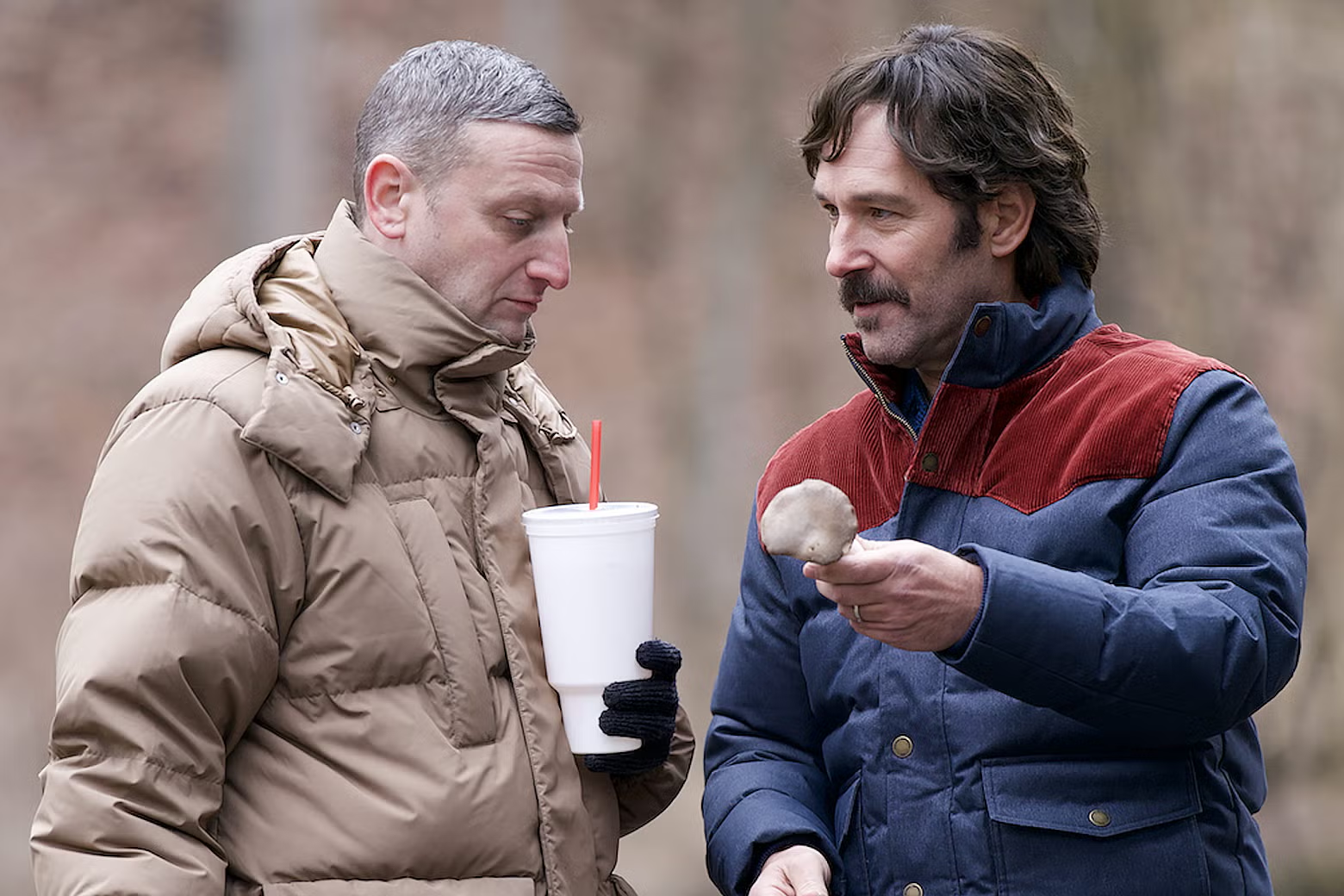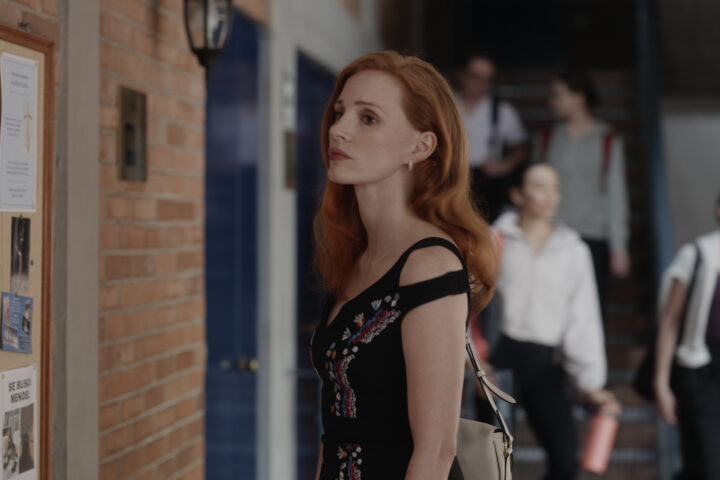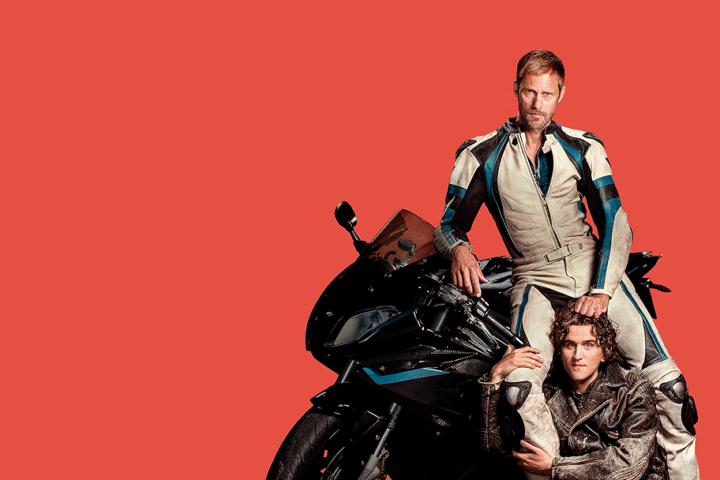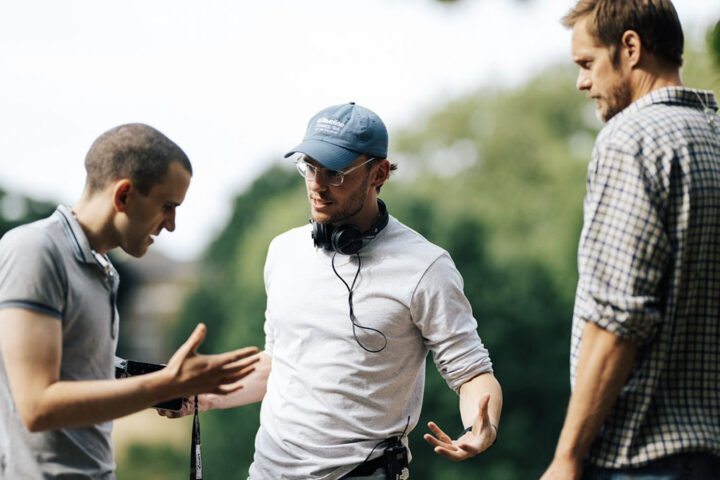Why do adult men often struggle to make friends with other men? Such fraught camaraderie dynamics inform writer-director Andrew DeYoung’s black comedy Friendship, in which an ill-fated bromance makes for an observant movie which, like the great human comedies, mines hilarity from humiliation and melancholy from smart social insight.
Many will see DeYoung’s set-up, that of a forty-something corporate drone who falls hard for the cool new guy on the block, as a riot of embarrassing hijinks—but between the laughs the movie has more on its mind. In charting a buddy bond gone painfully awry, a socially awkward suburban dad (Tim Robinson) fixates on his swaggering new neighbor (Paul Rudd) with consequences that are initially amusing, then increasingly unsettling. Yes, it’s funny—but it leaves you squirming.
The movie boldly asks us to identify with a man who, as we get to know him, may well deserve the ghosting he’s about to receive. But Robinson (co-creator and star of Netflix’ cringe sketch comedy show I Think You Should Leave) so smartly embodies middle-aged Clovis, Colorado husband and father Craig Waterman, whom we first meet in a cancer support group with his wife, Tami (Kate Mara), that we can’t help but feel for him, even when he’s his own worst enemy. Craig, proudly sporting an oversized down coat while longing to see the latest Marvel movie, is suburban malaise incarnate—he just doesn’t know it yet.
A longtime exec at a local marketing agency, he fancies himself the office’s big man on campus. But to everyone else he’s an odd-duck and a chore to be around. While even-keeled Tami runs a florals business from home, the family—including teen son Steven (Jack Dylan Grazer)—has outgrown both their house and car. What Craig doesn’t see is that Tami may have also outgrown their marriage and could be falling back into the arms of sexy ex Devon (Josh Segarra). But while she entertains new possibilities, Craig has no buds and never socializes.
Things shift when a mis-delivered package leads to a meet-cute with new neighbor Austin Carmichael (Rudd), who’s as effortlessly cool as Craig is nervously awkward. Rudd, leaning into every ounce of his natural charm, plays Austin as everything Craig isn’t, his self-assured, mustachioed local weatherman also, of course, fronting a rock band. The alpha to Craig’s beta, the two strike up an Odd Couple friendship: drinks and smokes are consumed, wild mushrooms consumed and soon Craig is invited to hang with Austin’s laid-back crew of hilariously bro-bonded buds (Risky Business alum Rafael Sbarge has a particularly amusing aside).
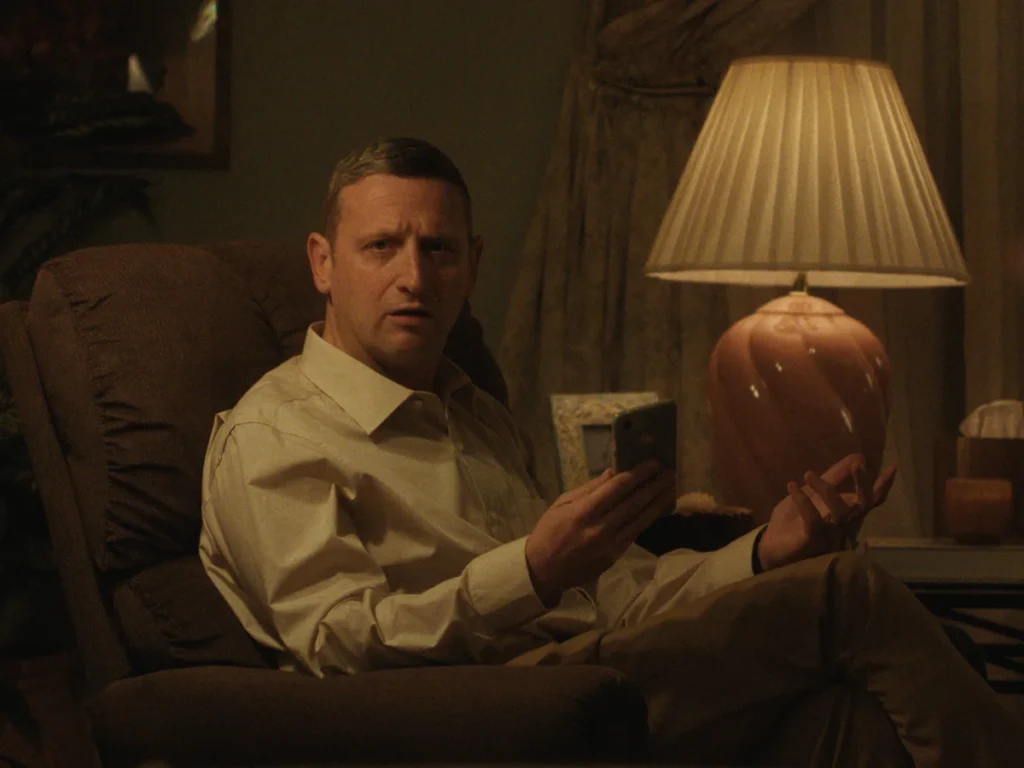
That meet-up goes wildly wrong after Craig, nervous as all get out, obliterates a sliding glass door and overzealously boxes Austin to the ground, suddenly making him persona non grata. Austin backs off, leaving still smitten Craig confused and (again) alone. For Craig, it’s a bitter comedown after a momentary bromance he’s probably always wanted. And let’s be real—it’s Paul Rudd. Wouldn’t you be crushed?
What follows goes spectacularly off the rails and with hilarious—and dark—results, which include breaking and entering, guns, professional suicide and a gravely missing person after Craig’s idea of a fun date night traps Tami in the town’s subterranean tunnels. DeYoung handles his tonal switch-ups so adeptly we hardly realize what becomes, at times, a surreal nightmare began as the lightest of black comedies.
Initially, comedian Robinson’s incisive performance seems all calculation for broad comic effect—he yells a bit too loudly, overemphasizes phrases and flails as if playing down, improv comedy style, to his socially inept doofus, who nerdily only wears clothes from “Ocean View Dining,” a menswear retailer whom he emphatically insists are the only ones that fit. But as the movie goes on and sketch-silly Craig wakes up to reality, he dials it back, essaying seriousness through the silliness. It’s these scenes, which include a funny-sad reunion with the boys’ club, marital showdown and unavoidable reckoning, that almost make you forget the high comedy.
Friendship has a lot to say about men’s roles today, from corporate chest thumping to marital and parental expectations and, most importantly, struggling for connection with other men. Straight male friendships are rarely explored in film, perhaps because they tend to be more guarded than their female counterparts. Yet recently a few films have explored such dynamics with real vulnerability—like The Banshees of Inisherin, The Eight Mountains and Sing Sing.
Much has been written about the complex dynamics of male camaraderie and the struggle of adult heterosexual men to form intimate, fraternal bonds. Social conditioning around vulnerability is often blamed; men are taught to avoid it, making real closeness difficult. As a result, adult male loneliness, as Craig finds out, is very real, and by the poignant end of Friendship, no laughing matter.
A very smart, funny, affecting comedy.
3 1/2 stars
